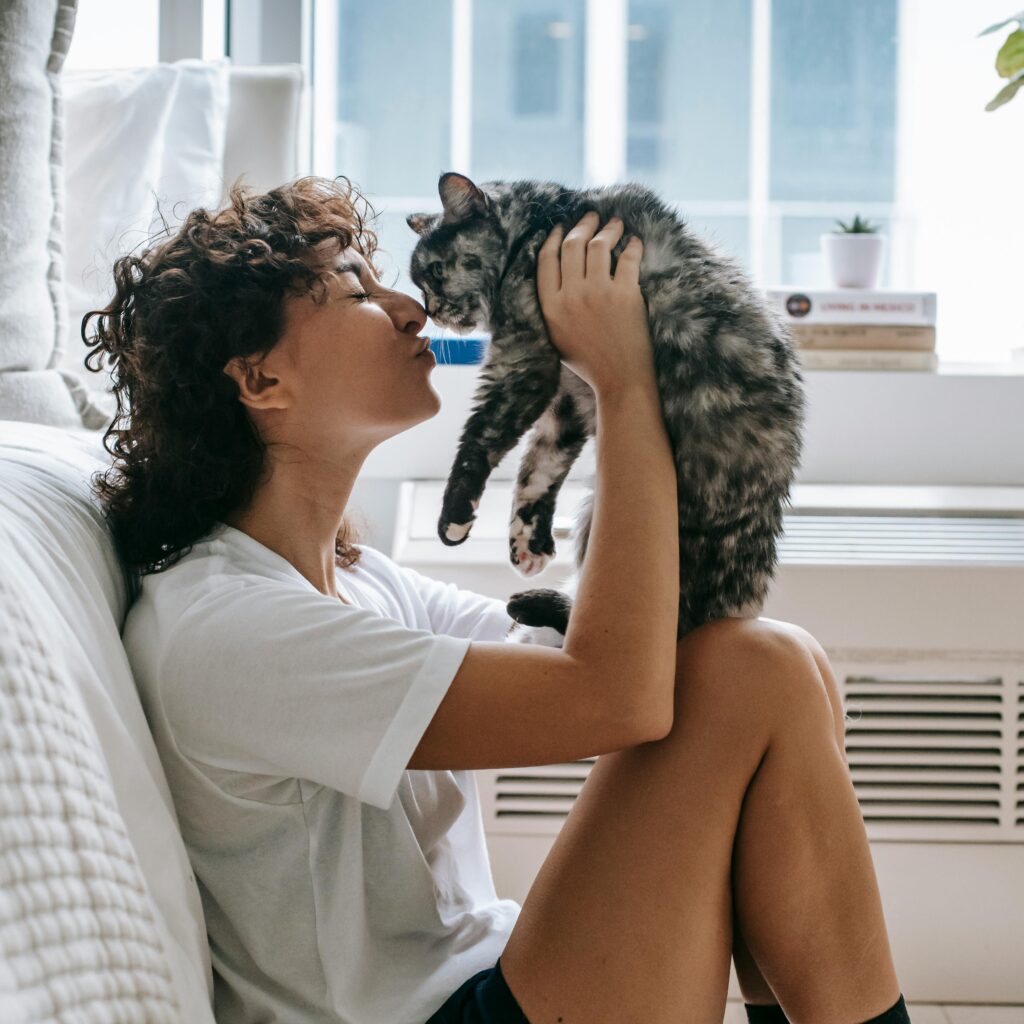Welcome to the wonderful world of kitten care! How can you tell when a kitten is happy ? Bringing home a new kitten is an exciting time, but it also comes with its fair share of responsibilities. To ensure that your newest furry family member is happy and content, it’s important to understand their behavior and needs.
1. Introduction
– Welcome to the wonderful world of kitten care!
– Understanding your kitten’s behavior and needs
2. 10 Ways to Tell When a Kitten Is Happy
– Exploring signs of a happy and contented kitten
– Importance of recognizing these signs for providing proper care
3. Key Takeaways
– Summary of the main points discussed in the article
4. What Care Does My Kitten Need?
– Overview of essential aspects of kitten care
– Discussion on healthcare, vaccinations, diet, grooming, and training
5. Kitten Healthcare
– Importance of regular veterinary check-ups
– Vaccination schedule and preventive care
6. Kitten Vaccinations
– Role of vaccines in protecting against diseases
– Common vaccinations and their importance
7. Kitten Diet
– Importance of a balanced and nutritious diet
– Choosing the right kitten food and feeding schedule
8. Grooming Kittens
– Essential grooming practices for maintaining physical health and appearance
– Introduction to grooming in a positive manner
9. Kitten Training
– Importance of socialization and behavioral development
– Basic training tips for litter box usage and obedience
10. Conclusion
– Recap of the importance of proper care for kitten health and well-being
– Tips for nurturing kittens at different stages of development
FAQ
– Answers to common questions about kitten care, health, and behavior

In this article, we will explore ten signs that how can you tell when is a kitten happy. By being aware of these signs, you can provide the best care and attention for your new furry friend, ensuring they have a joyful life.
Key Takeaways:
- Pay attention to your kitten’s body language, such as relaxed ears and a gently swaying tail.
- A happy kitten will have bright and alert eyes, indicating good health and contentment.
- A playful and energetic kitten is a sign of happiness, as they are enjoying their environment.
- Contented kittens show a willingness to interact and seek affection from their human companions.
- Regular eating habits and a healthy appetite are signs of a happy kitten.
How Can You Tell When a Kitten is Happy: What Care Does My Kitten Need
Taking care of a new kitten involves several essential aspects of their health and well-being. By providing proper care and attention, you can ensure that your furry friend grows up healthy and happy. In this section, we will discuss the key components of kitten care, including healthcare, vaccinations, diet, grooming, and training.
How can you tell when a kitten is happy in Kitten healthcare is crucial for their overall well-being. It is essential to schedule regular check-ups with a veterinarian to ensure that your kitten is in good health. These check-ups allow the vet to monitor your kitten’s growth, administer necessary vaccinations, and address any potential health concerns. Regular visits to the vet contribute to preventive care and early detection of illnesses, promoting your kitten’s longevity.
https://www.youtube.com/watch?v=j8mTSnmb6lA
Kitten Vaccinations
Vaccinations play a vital role in protecting your kitten from various diseases. Vaccines are typically administered in a series, starting at around eight weeks of age. Common vaccinations include those for feline distemper, feline herpesvirus, and feline calicivirus. Each vaccine stimulates your kitten’s immune system to develop the necessary antibodies, ensuring their ability to fight off infections. Keeping up with the recommended vaccination schedule is essential for maintaining your kitten’s health.
Kitten Diet
A balanced and nutritious diet is crucial for your kitten’s growth and development. Choose high-quality kitten food that meets their specific nutritional needs. Kitten food often contains higher protein and fat content to support their rapid growth and energy requirements. Consult your veterinarian to determine an appropriate feeding schedule and portion sizes based on your kitten’s age, size, and breed. Providing fresh water at all times is also essential to keep your kitten hydrated.
Grooming Kittens
Grooming is an essential aspect of caring for your kitten’s physical health and appearance. Regular brushing helps prevent matting and promotes a healthy coat. It also helps remove loose hair and reduces the risk of hairballs. Additionally, regular nail trims and dental care are necessary to maintain your kitten’s overall hygiene. Introduce grooming to your kitten gradually, making it a positive and pleasant experience for them.
Kitten Training
Training your kitten is essential for how can you tell when a kitten is happy in their socialization and behavioral development. Start with basic commands such as sit, stay, and come. Use positive reinforcement, such as treats and praise, to reward good behavior. Training also includes litter box training and scratching post usage, which helps keep your home clean and prevents destructive behavior. Consistency, patience, and positive reinforcement are key to successful kitten training.
Conclusion
How can you tell when is a kitten happy Providing the best care for your new kitten is essential for their health and well-being. In this article, we have discussed the signs of a happy kitten and the necessary care they require at different stages of their development. Whether you have a newborn kitten or one that is a few weeks old, these tips will help you create a nurturing environment for your furry friend.
When it comes to newborn kitten care, it’s crucial to provide warmth, regular feeding, and gentle handling to mimic their mother’s care. As they reach 4 weeks old, you can start introducing solid food and gradually wean them off milk. By the time your kittens are 6 weeks old, they can start exploring their surroundings and engaging in playtime.
Taking care of newborn kittens requires patience and attention to detail. Make sure to keep their area clean, monitor their weight gain, and provide a safe and quiet space for them to rest. As they grow older, socialization and stimulation become important for their overall well-being.
By following these guidelines for taking care of newborn kittens, kittens 4 weeks old, and kittens six weeks old, you can provide the best care for your furry friends. With your love and attention, your kittens will grow into happy and healthy adult cats, bringing joy to your life for years to come.
FAQ
What are some signs that indicate a happy kitten?
A happy kitten will exhibit playful behavior, purr when petted, have a healthy appetite, show curiosity in exploring their surroundings, have bright and alert eyes, and engage in social interaction.
What healthcare does my kitten need?
Your kitten needs regular vaccinations to protect against common diseases, deworming to eliminate any internal parasites, and regular check-ups with a veterinarian to ensure their overall health. It is also important to spay or neuter your kitten to prevent unwanted pregnancies and reduce the risk of certain health issues.
How can I ensure the wellness of my kitten?
To promote the wellness of your kitten, provide a balanced and age-appropriate diet, ensure they have access to fresh water at all times, provide regular exercise and playtime, and create a safe and stimulating environment. Regular grooming, including brushing their coat and trimming their nails, is also essential for their well-being.
When should I start vaccinating my kitten?
It is recommended to start vaccinating your kitten at around 8 weeks of age. Your veterinarian will create a vaccination schedule to protect your kitten against diseases such as feline distemper, feline herpesvirus, and feline calicivirus.
What should I feed my kitten?
A balanced diet is crucial for your kitten’s growth and development. Choose a high-quality kitten food that is specifically formulated to meet their nutritional needs. It is best to follow the feeding guidelines provided on the food packaging or consult your veterinarian for personalized feeding recommendations.
How can I groom my kitten?
Grooming your kitten not only helps to keep their coat clean and healthy but also strengthens your bond. Regularly brush your kitten’s fur to remove any loose hair and prevent matting. Additionally, gently clean their ears, trim their nails, and brush their teeth to maintain their overall hygiene.
How can I train my kitten?
Training your kitten is an essential part of their development. Start by using positive reinforcement techniques, such as treats and praise, to reward desired behaviors like using the litter box or scratching posts. Be patient and consistent in your training efforts and consider using interactive toys to mentally stimulate your kitten.
How should I care for newborn kittens?
Newborn kittens require specific care to ensure their survival and well-being. Keep them in a warm and quiet environment, provide them with a milk replacement formula if their mother is not present, gently stimulate their genital area for urination and defecation, and monitor their weight gain. Regular check-ups with a veterinarian are essential during this delicate stage.
How do I care for kittens that are 4 weeks old?
At 4 weeks old, kittens should be introduced to solid food alongside their mother’s milk. Offer them a high-quality kitten food that is moistened for easier consumption. Gradually decrease their reliance on milk and provide them with a shallow litter box for potty training. Continue monitoring their growth and development closely.
How do I care for kittens that are six weeks old?
At six weeks old, kittens should be fully weaned and eating solid food. Provide them with a balanced diet of kitten food and ensure they have access to clean water at all times. Continue socializing and playing with them to encourage proper behavior and continue monitoring their overall health and well-being.
